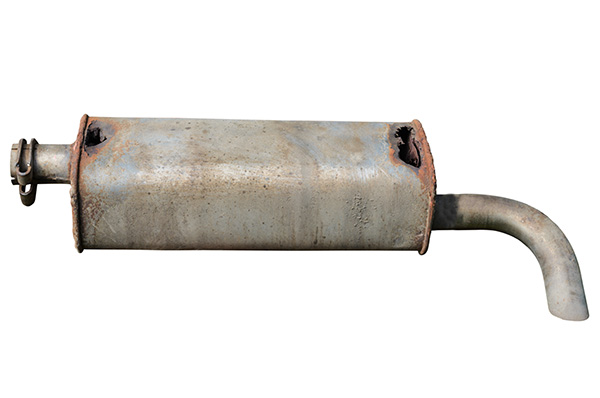
If you’ve noticed a rotten egg smell coming from your car’s exhaust, it's not just unpleasant—it usually signals a problem. This foul odor isn’t something to ignore, as it often points to issues within your vehicle’s exhaust system, fuel system, or engine. A smell like rotten eggs usually indicates the presence of sulfur, and while your car isn’t filled with eggs, the cause can be traced to a few specific parts under the hood. So, why does this happen, and what should you do about it?
The Role of the Catalytic Converter
The most common culprit behind a rotten egg smell from your exhaust is the catalytic converter. This part plays a crucial role in your car's emissions system by converting harmful gasses like hydrogen sulfide, a compound that naturally contains sulfur, into less harmful substances. Under normal circumstances, the catalytic converter should neutralize any potential sulfur smell.
However, when the catalytic converter starts to malfunction or becomes clogged, it fails to convert hydrogen sulfide properly, leading to that distinctive rotten egg smell. Ignoring this issue can cause more than just unpleasant odors. A failing catalytic converter can lead to poor engine performance and decreased fuel efficiency, not to mention it’s a costly part to replace if it gets damaged beyond repair.
Issues with the Fuel System
Another reason you might be smelling sulfur in your car’s exhaust is due to a fuel system issue. Specifically, if there’s a problem with the fuel injectors, fuel pressure regulators, or fuel filters, the engine might be burning excess fuel. Unburned fuel that escapes into the exhaust can overwhelm the catalytic converter, causing the sulfur compounds in the fuel to release that rotten egg smell.
In some cases, using low-quality fuel with high sulfur content can also contribute to this issue. If you've recently filled up at a new or unfamiliar gas station, this could be the reason behind the smell. Switching to a higher-grade fuel and monitoring the results can help diagnose if low-quality fuel is the root cause.
Faulty Oxygen Sensors
Oxygen sensors are vital to the function of your car’s exhaust system. They monitor the ratio of air to fuel in your engine, ensuring the mixture is optimized for both performance and emissions. If an oxygen sensor fails, it can lead to a rich fuel mixture, meaning too much fuel is being burned. As a result, your catalytic converter is forced to process more sulfur than it should, which again leads to that unpleasant sulfur smell.
A faulty oxygen sensor won’t just make your car smell bad—it can also reduce your fuel economy and increase harmful emissions. If left unchecked, this can cause further damage to other components in your vehicle.
Leaking Exhaust System
A less common but still possible cause of the sulfuric smell could be a leak in your exhaust system. Exhaust leaks can allow gasses to escape prematurely before the catalytic converter has fully treated them. This means sulfur compounds might not be adequately processed, resulting in the rotten egg smell wafting from your exhaust. Exhaust leaks can be dangerous because they might also allow toxic gasses, like carbon monoxide, to enter your vehicle's cabin.
If you suspect an exhaust leak, it’s crucial to get it checked and repaired as soon as possible, as it not only impacts the smell but also your safety and the overall performance of your car.
What Should You Do If You Smell Rotten Eggs in Your Car's Exhaust
The most important thing to remember is that a sulfur-like smell from your exhaust is a sign that something isn't functioning correctly. The issue could be with your catalytic converter, fuel system, oxygen sensors, or exhaust system, and while the exact problem varies, it’s essential to address it promptly to prevent further damage to your car. Continuing to drive with a faulty catalytic converter or an exhaust leak could lead to more significant—and more expensive—repairs down the line.
Noticed a sulfur smell coming from your car? Stop by Chahel Automotive for a quick and easy diagnosis. Our team will get to the bottom of the issue and make sure your car is running properly again. Contact us today for expert service!